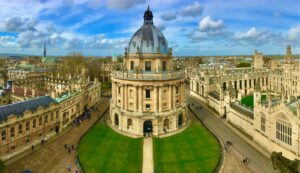Official figures have revealed that the UK fell into a recession towards the end of last year as households cut back on spending.
Since the cost-of-living crisis began back in 2021 people have expected figures from the Office for National Statistics (ONS) to inform them of whether rates of increased or declined. However, this morning’s news has shocked many.
Research from the ONS has shown that gross domestic product (GDP) fell by a larger than expected 0.3% in the three months to December after a decline in all main sectors of the economy and a collapse in retail sales during the run up to Christmas.
The drop followed a decline of 0.1% in the third quarter, confirming a second consecutive quarter of falling national output – the technical definition of a recession.
Commenting on the news, chancellor, Jeremy Hunt, said: ‘High inflation is the single biggest barrier to growth, which is why halving it has been our priority. While interest rates are high – so the Bank of England can bring inflation down – low growth is not a surprise.
‘But these are signs the British economy is turning a corner. Forecasters agree that growth will strengthen over the next few years, wages are rising faster than prices, mortgage rates are down, and unemployment remains low. Although times are still tough for many families, we must stick to the plan – cutting taxes on work and business to build a stronger economy.’
Since December 2021 the Bank of England have continuously hiked up interested rates in a bid to avoid a recession, however the confirmation of one is a huge blow to many. Not only have people had to cope with increased mortgage rates, but a recession now means various businesses across the UK are going to suffer.
In addition, the news has embarrassed Prime Minister Rishi Sunak, as he previously pledged to get the economy back on track as part of is five priorities for the government at the beginning of 2023. With a general election looming, things aren’t looking good for the Conservative government.
Rachel Reeves, the shadow chancellor, has said: ‘Rishi Sunak’s promise to grow the economy is now in tatters. The prime minister can no longer credibly claim that his plan is working or that he has turned the corner on more than 14 years of economic decline under the Conservatives that has left Britain worse off.
‘This is Rishi Sunak’s recession, and the news will be deeply worrying for families and businesses across the UK.’
Against this backdrop, the ONS claimed that growth throughout 2023 as a whole was estimated at 0.1% – the weakest year since 2009, excluding the economic collapse in 2020.
‘Our initial estimate shows the UK contracted in the fourth quarter of 2023,’ Liz McKeown, director of economic statistics at the ONS, said. ‘While it has now shrunk for two consecutive quarters, across 2023 as a whole the economy has been broadly flat.’
McKeown added: ‘All the main sectors fell on the quarter, with manufacturing, construction and wholesale being the biggest drags on growth, partially offset by increases in hotels and rentals of vehicles and machinery.’
Image: Martijn Baudoin
Inflation: Figures remain steady but families will still have to go without
Inflation: The UK economy is growing but will we avoid a recession?

















Leave a Reply